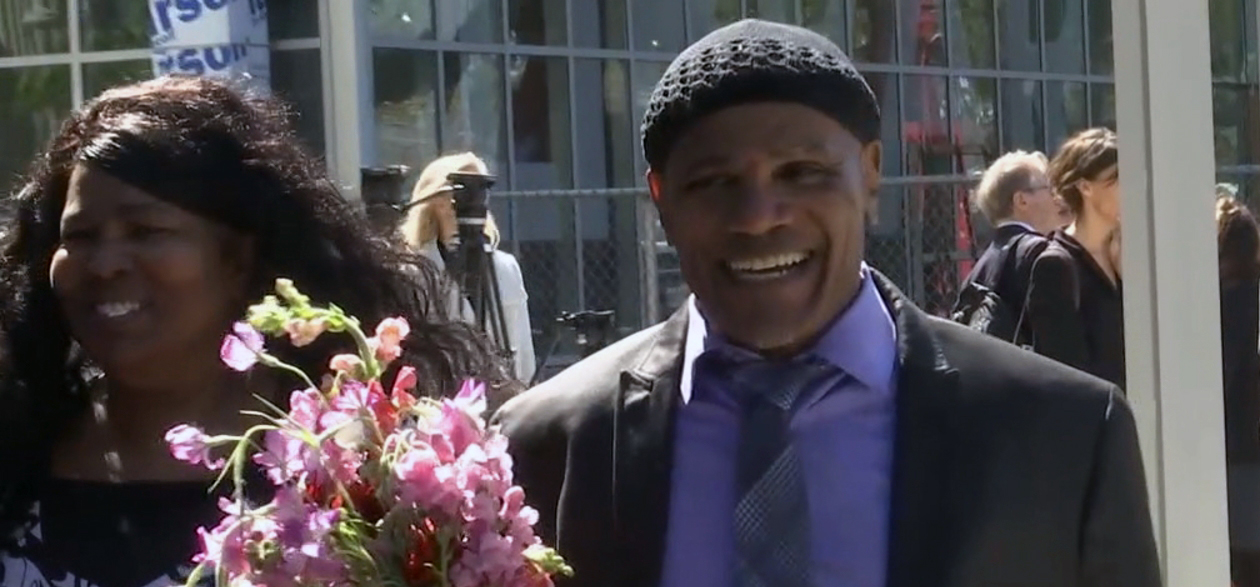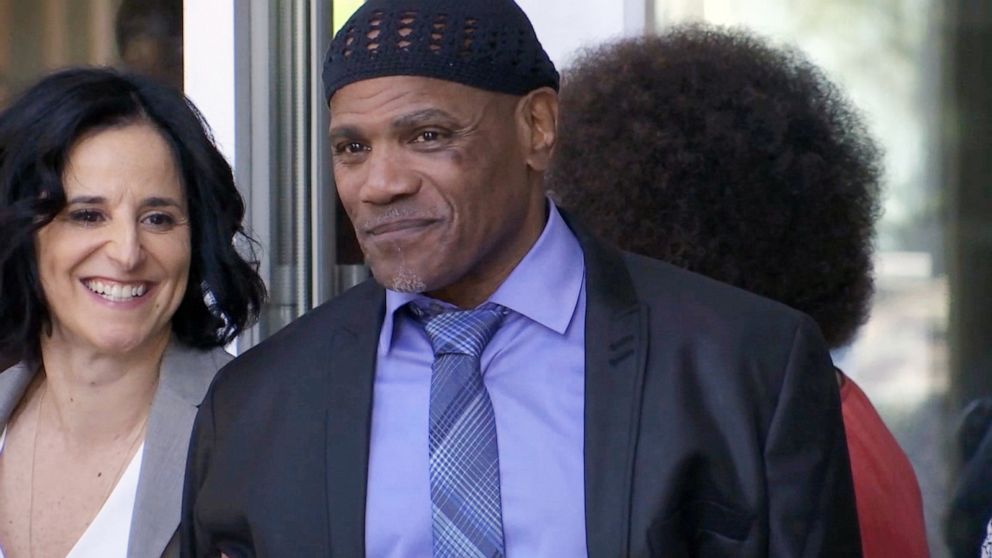Man exonerated over wrongful rape conviction after 36 years in prison
Three people testified that he was asleep at home when the rape occurred.
The fingerprints at the scene were not a match.
He is several inches shorter than the sole witness's description of the suspect and the witness didn't point to him as the suspect in two photo line ups.
But he was sentenced to life in prison without the possibility of parole for a 1982 rape and stabbing.
Thirty six years later, Archie Williams had his wrongful conviction vacated, as the Innocence Project detailed in a statement.
"Being innocent is a thing where you never give up on yourself, you always fight for your freedom no matter what," Williams said in a video from outside a Baton Rouge, Louisiana, courthouse shared by The Advocate, a New Orleans newspaper.
He left the 19th Judicial District courthouse on Thursday joined by relatives including his aunt, who said his mother and father died while their son was in prison.
You always fight for your freedom no matter what.
"There is no way to quantify the loss and pain he has endured," Vanessa Potkin, the director of post-conviction litigation at the Innocence Project, which worked on Williams' case since he reached out to them in 1995, said in a statement. "The Innocence Project fought alongside Mr. Williams for close to two and a half decades to be able to utilize advancements in forensic testing to prove his innocence," Potkin said in a statement.
Williams, who was 22 years old at the time of the rape he was charged with, is now 58 years old.
The decades-long gap between his conviction and his charge being vacated included a series of problems complicated by the absence of certain legal rights.
For instance, when the Innocence Project took on his case, they requested DNA testing for Williams, but their statement notes it took over a decade for that to happen because Louisiana didn't have a law allowing convicted prisoners to access DNA testing after trials.
There were also legal hurdles surrounding the testing of fingerprints, and as the technology progressed, that led to the key to Williams' release.
Next Generation Identification, a new type of fingerprint testing system, began being used in 2014, but it wasn't used in Williams' case until last week, the Innocence Project states.
East Baton Rouge District Attorney Hillar C. Moore III told The Advocate outside court Thursday that the system for "matching latent fingerprints changed significantly."
"These prints have been run before with no match, and then run again with no match," Moore said, "and now it's run this time and the system has been a lot better, and so now these prints come back to a different person."
This decision today ... was the right, honest, ethical and, now, factual thing to do.
The testing of nine prints from the crime scene, which were selected by fingerprint experts based on their viability, led to the identification of a different man -- Stephen Forbes, a man with a history of committing similar assaults in the same neighborhood -- as the attacker.
The Innocence Project reports that Forbes was arrested in 1986, confessed to four other rapes -- not including the one Williams was convicted for -- and died in prison in 1996.

"This decision today ... was the right, honest, ethical and, now, factual thing to do. We believe that this was a wrongful conviction based on technology processes that were in place then; things have truly changed since," Moore said in the video shared by The Advocate.
Williams thanked God for carrying him through, saying, "I just fought for this moment here; I never gave up because he wouldn't let me give up."
Though he's happy for his own freedom, he told The Advocate, he's "not completely happy" because he can't forget the people he's leaving behind at the Angola prison who may also have had wrongful convictions.
"I'm not free until they're free," Williams said.




